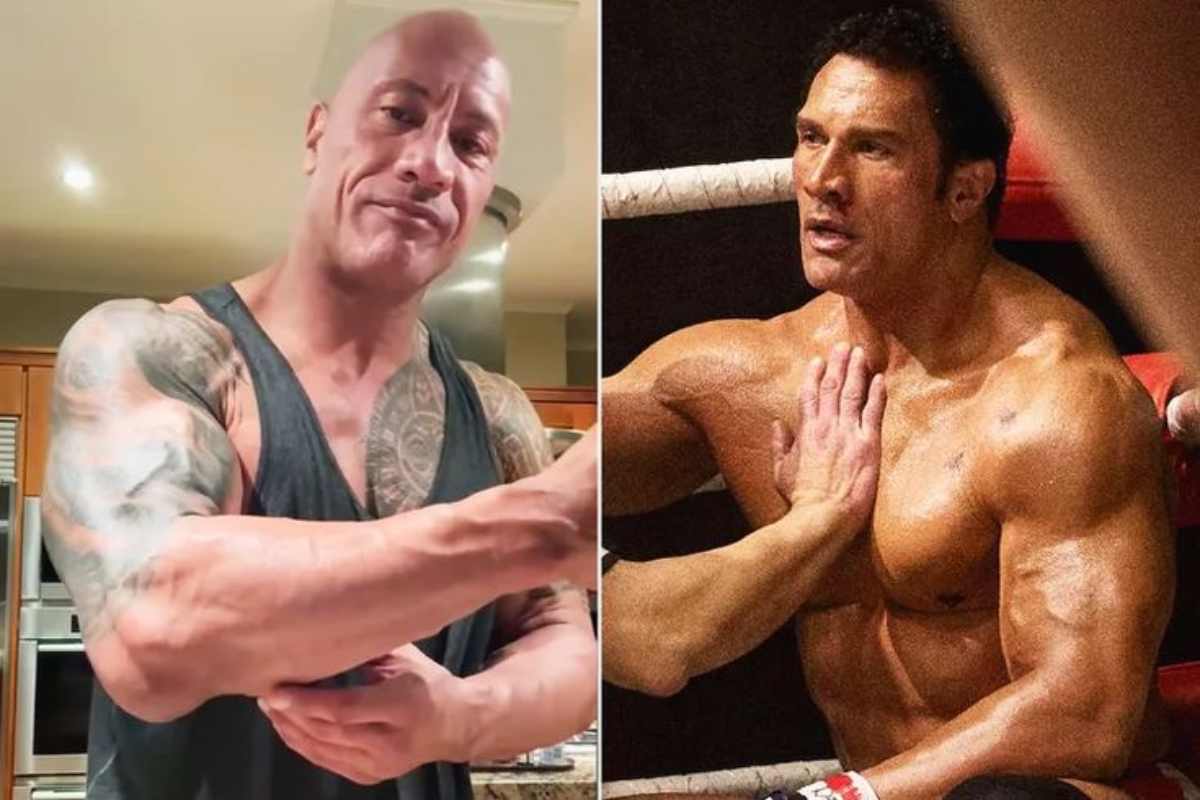I’ll Fly Away television show, an American television drama series, aired on NBC from October 7, 1991, to February 5, 1993. Created by Joshua Brand and John Falsey, the show was set in a fictional Southern U.S. state in the late 1950s and early 1960s. It followed the lives of its characters during a transformative period in American history, focusing on themes of race, justice, and social change. Regina Taylor starred as Lilly Harper, a Black caretaker for the family of district attorney Forrest Bedford, participate by Sam Waterston. As the series progressed, Lilly became increasingly involved in the Civil Rights Movement, which gradually involved her employer, Forrest Bedford.
Overview Of I’ll Fly Away Television Show
The I’ll Fly Away television show was a drama and a poignant exploration of the social and racial dynamics of the American South during a crucial period in history. It provided a nuanced depiction of the complexities faced by individuals living through the Civil Rights Movement, highlighting the struggles, sacrifices, and triumphs of those who fought for justice and equality.
The series takes its name from a Christian hymn put down in 1929 by Albert E. Brumley, reflecting the show’s exploration of themes such as freedom, hope, and transcendence. These themes resonated throughout the series as it depicted the lives of its characters, who navigated personal and societal challenges against the backdrop of a changing America.
Episodes of I’ll Fly Away television show
| No. in Series | No. in Season | Title | Directed by | Written by | Original Air Date |
|---|---|---|---|---|---|
| 1 | 1 | “Pilot” | Joshua Brand | Joshua Brand & John Falsey | October 7, 1991 |
| 2 | 2 | “The Hat” | John David Coles | David Chase | October 8, 1991 |
| 3 | 3 | “Rules of the Game” | Jack Bender | Barbara Hall | October 15, 1991 |
| 4 | 4 | “Amazing Grace” | Kevin Rodney Sullivan | Henry Bromell | October 22, 1991 |
| 5 | 5 | “All God’s Children” | Eric Laneuville | Judi Ann Mason | October 29, 1991 |
| 6 | 6 | “Beyond Here Dar Be Dragons” | Eugene Corr | Josef Anderson | November 5, 1991 |
| 7 | 7 | “Parallel Lives” | Michael Fresco | Stuart Stevens | November 19, 1991 |
| 8 | 8 | “Coming Home” | Mark Sobel | Kevin Arkadie | November 26, 1991 |
| 9 | 9 | “Some Desperate Glory” | Ian Sander | Barbara Hall | December 10, 1991 |
| 10 | 10 | “Desire” | Aaron Lipstadt | Henry Bromell and Judi Ann Mason | December 17, 1991 |
| 11 | 11 | “Alice Oakley Doesn’t Live Here Anymore” | Jack Bender | Josef Anderson | January 7, 1992 |
| 12 | 12 | “On the Road” | Barbara Amato | Frank Dandrolf | February 28, 1992 |
| 13 | 13 | “Master Magician” | Eric Laneuville | David Chase | March 6, 1992 |
| 14 | 14 | “Hard Lessons” | Jack Bender | Barbara Hall | March 13, 1992 |
| 15 | 15 | “Cool Winter Blues” | Joe Napolitano | Judi Ann Mason | March 20, 1992 |
| 16 | 16 | “The Way Things Are” | Roy Campanella II | Henry Bromell | March 27, 1992 |
| 17 | 17 | “Slow Dark Coming” | Michael Fresco | Karen Hall | April 3, 1992 |
| 18 | 18 | “Toy Soldiers” | Michael Katleman | Marc Rubin | April 10, 1992 |
| 19 | 19 | “The Kindness of Strangers” | Bruce Seth Green | Barbara Hall and Henry Bromell | April 24, 1992 |
| 20 | 20 | “Not Buried” | David Chase | David Chase | May 1, 1992 |
| 21 | 21 | “A Dangerous Comfort” | Michael Fresco | Barbara Hall and Henry Bromell | May 15, 1992 |
| 22 | 22 | “The Slightest Distance” | Ian Sander | Paul Margolis | May 15, 1992 |
| 23 | 1 | “Hello and Goodbye” | Jack Bender | Barbara Hall | September 25, 1992 |
| 24 | 2 | “Ruler of My Heart” | Michael Fresco | Kevin Arkadie | October 2, 1992 |
| 25 | 3 | “All in the Life” | Ian Sander | Henry Bromell | October 9, 1992 |
| 26 | 4 | “Until Tomorrow” | Eric Laneuville | Henry Bromell | October 16, 1992 |
| 27 | 5 | “Desperate Measures” | Allan Arkush | Barbara Hall | October 30, 1992 |
| 28 | 6 | “Freedom Bus” | Michael Katleman | Rogers Turrentine | November 6, 1992 |
| 29 | 7 | “Eighteen” | David Chase | David Chase | November 13, 1992 |
| 30 | 8 | “Fragile Truths” | Jack Bender | Karen Hall | November 20, 1992 |
| 31 | 9 | “Since Walter” | Sam Waterston | Lynn Siefert | November 27, 1992 |
| 32 | 10 | “The Third Man” | Kevin Hooks | Lonne Elder | December 11, 1992 |
| 33 | 11 | “Comfort and Joy” | Scott Paulin | Barbara Hall | December 11, 1992 |
| 34 | 12 | “Realpolitik” | Allan Arkush | Henry Bromell and Kevin Arkadie | January 8, 1993 |
| 35 | 13 | “Small Wishes” | Félix Enríquez Alcalá | Dee Johnson | January 15, 1993 |
| 36 | 14 | “What’s in a Name?” | James A. Contner | Marjorie David | January 22, 1993 |
| 37 | 15 | “Commencement” | Jack Bender | Rogers Turrentine | January 29, 1993 |
| 38 | 16 | “State” | Ian Sander | Josef Anderson | February 5, 1993 |
| TV Film | “Then and Now” | Ian Sander | John Falsey | October 11, 1993 |
Characters and Cast
Main Characters
Lilly Harper (Regina Taylor):
Lilly Harper, portrayed by Regina Taylor, is the heart and soul of the I’ll Fly Away television show. As a Black housekeeper working for the Bedford family, Lilly’s character evolves from a quiet observer to an operative participant in the Civil Rights Movement. Her journey is one of self-discovery and empowerment as she becomes increasingly involved in advocating for racial equality. Taylor’s portrayal of Lilly earned her widespread acclaim, and in 1999, TV Guide ranked Lilly Harper number 15 on its list of 50 Greatest TV Characters of All Time.
Forrest Bedford (Sam Waterston):
Forrest Bedford, played by Sam Waterston, is the district attorney in the fictional town of Bryland. His character reflects the moral dilemmas faced by many during this era. Initially focused on his career and family, Forrest becomes more engaged with the Civil Rights Movement as he witnesses the injustices faced by the Black community. Waterston’s portrayal of Forrest earned him a Golden Globe Award for famous Actor in a Television Series Drama.
Nathaniel “Nathan” Bedford (Jeremy London):
Nathan Bedford, portrayed by Jeremy London, is Forrest’s son. Throughout the series, Nathan’s character grapples with his understanding of race, privilege, and his relationship with Lilly’s family. His coming-of-age story provides a lens through which the audience can explore the effect of the Civil Rights Movement on younger generations.
Supporting Characters
Francie Bedford (Ashlee Levitch):
Ashlee Levitch plays Francie Bedford, Forrest’s daughter. Her character represents the evolving attitudes of young people during this time as she becomes increasingly aware of the racial inequalities around her.
John Morgan Bedford (John Aaron Bennett):
John Morgan Bedford, portrayed by John Aaron Bennett, is Forrest’s youngest son. Through his innocent eyes, the series highlights the subtle and overt forms of racism present in society and their impact on children’s perceptions.
Lewis Coleman (Bill Cobbs):
Lewis Coleman, played by Bill Cobbs, is a recurring character and a prominent figure in the Black community. His wisdom and guidance serve as a moral compass for Lilly and others involved in the Civil Rights Movement.
Setting
The I’ll Fly Away television show is set in the fictional town of Bryland, in an unspecified Southern U.S. state. The series creators intentionally left the state unspecified to focus on the broader themes and issues of the era rather than tie the story to a specific location. However, certain references in the show suggest that the likeliest setting is Georgia.
The setting participates a crucial role in shaping the narrative, as it captures the cultural and social landscape of the South during the late 1950s and early 1960s. The show effectively uses its setting to depict the tensions and conflicts that arise as the Civil Rights Movement gains momentum, challenging the status quo and forcing individuals to confront their beliefs and biases.
Themes
The I’ll Fly Away television show is rich in themes that resonate with its audience. The series addresses various social, cultural, and personal issues, providing a thought-provoking exploration of the human condition.
Racial Equality and Social Justice
At its core, the television show I’ll Fly Away is a powerful exploration of racial equality and social justice. The series sheds light on the systemic racism and discrimination faced by Black individuals in the South during the Civil Rights Movement. Through Lilly Harper’s and other characters’ experiences, the show highlights the courage and resilience required to challenge deeply ingrained prejudices and fight for a more equitable society.
Moral Dilemmas and Personal Growth
The characters in the I’ll Fly Away television show grapple with complex moral dilemmas, often torn between personal beliefs and societal expectations. Forrest Bedford’s character, in particular, embodies the struggle to reconcile personal values with professional responsibilities. The series explores the transformative power of empathy and understanding as characters confront their biases and evolve in their perspectives.
Family Dynamics and Relationships
Family dynamics play a significant role in the I’ll Fly Away television show, as the characters struggle to balance familial responsibilities with their involvement in the Civil Rights Movement. The relationships between Lilly and the Bedford family members, particularly Forrest and Nathan, highlight the potential for growth and understanding across racial and generational divides.
The Pursuit of Freedom
The series takes its name from a Christian hymn, symbolizing the pursuit of freedom and liberation. This theme is woven throughout the narrative as characters seek personal and societal liberation from the constraints of racism and inequality. The show underscores the importance of hope and perseverance in adversity.
Critical Reception and Awards
The I’ll Fly Away television show received critical acclaim for its compelling storytelling, exceptional performances, and poignant exploration of social issues. Despite its limited run, the series garnered numerous awards and nominations, cementing its place in television history.
Emmy Awards
In 1992, I’ll Fly Away won two Emmy Awards. Eric Laneuville was awarded for Outstanding one progress in administrating in a Drama Series for the episode “All God’s Children.” The series creators, Joshua Brand and John Falsey, also won the Emmy for Outstanding one Achievement in Writing in a Miniseries or a Special.
Humanitas Prizes and Golden Globe Awards
The series won three Humanitas Prizes, which recognize excellence in writing that promotes human dignity, meaning, and freedom. Additionally, I’ll Fly Away received two Golden Globe Awards, with Sam Waterston and Regina Taylor winning Best Actor and Best Actress in a Television Series Drama.
NAACP Image Awards and Peabody Award
The show was honoured with two NAACP Image Awards for Outstanding Drama Series and received the prestigious Peabody Award, recognizing excellence in storytelling that reflects diverse voices and engages audiences.
Other Recognitions
In 1999, TV Guide ranked Lilly Harper number 15 on its list of 50 Greatest TV Characters of All Time, and in 2013, the series was ranked #9 on its list of 60 shows that were “Cancelled Too Soon.” These accolades underscore the show’s lasting impact and status as a beloved and influential television series.
Legacy and Impact
Although the I’ll Fly Away television show was cancelled after two seasons, its legacy continues to resonate with audiences and critics alike. The series’ exploration of racial and social issues remains relevant in today’s cultural landscape as a reminder of the ongoing strive for justice and equality.
The I’ll Fly Away television show also paved the way for future series that address similar themes, contributing to the broader conversation about race, representation, and storytelling in the media. Its impact is evident in the continued recognition and appreciation of its contributions to television history.
Conclusion
The I’ll Fly Away television show is a remarkable and thought-provoking series that left an indelible mark on the landscape of American television. The series continues to motivate and resonate with audiences through its powerful storytelling, exceptional performances, and exploration of complex social issues. As we reflect on the themes and narratives presented in the I’ll Fly Away television show, we are reminded of the importance of empathy, understanding, and the pursuit of justice. The show’s enduring legacy serves as a witness to the power of storytelling in shaping our understanding of the world and our place within it.









